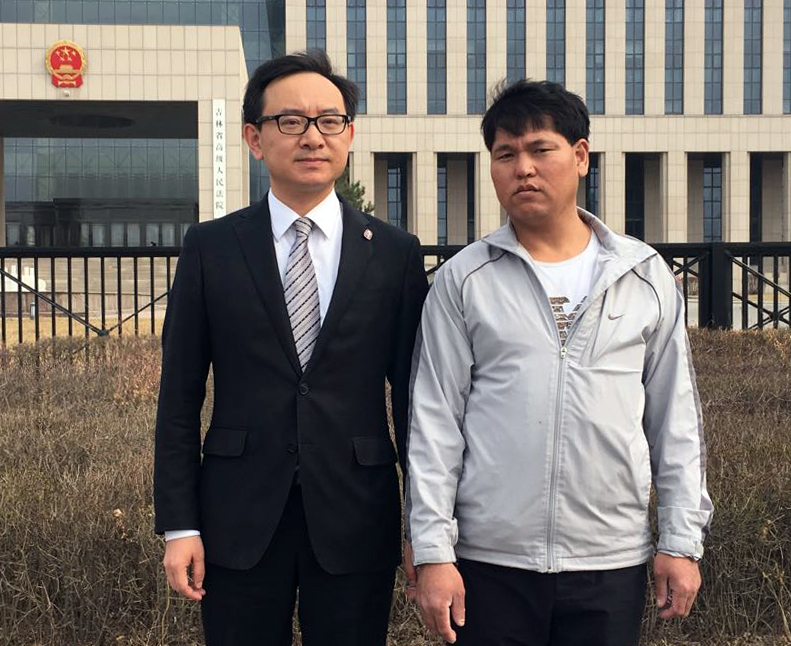Appeals project helps to advance the rule of law
By Cao Yin | China Daily | Updated: 2018-05-24 07:54

"The statements he gave during questioning were very inconsistent, which made me suspect that something was wrong. Also, I felt sorry for Liu, especially after seeing such a shy man burst into tears when speaking about his case in a prison in Jilin in April 2015," he said.
Zhang petitioned the court frequently, and in April 2016, the case was reheard. Liu had already been released from prison, having served 25 years after his original sentence of death with a two-year reprieve was commuted to life imprisonment. He simply wanted to clear his name.
"It was a long and difficult wait, but we finally made it," said Zhang, who studied criminal law at the People's Public Security University of China and dealt with civil disputes in the early years of his career before focusing exclusively on criminal defense cases.
"Liu's acquittal validated my decision to specialize in criminal defense, and was a great boost because it proved the value of my work," the 41-yearold added.
On Wednesday, Liu applied for compensation of more than 16 million yuan ($2.5 million) for wrongful detention and mental anguish.
A historic moment
In September, Gao was delighted when Fujian Provincial High People's Court overturned the conviction of his client, Miao Xinhua.
In 2004, Miao was sentenced to death by a court in Ningde city, Fujian, after being convicted of intentionally killing a woman.
The crime of murder does not exist in Chinese law; instead, defendants are charged with homicide and tried for intentional or unintentional killing.
A year after the conviction, the high people's court commuted Miao's punishment to a suspended death sentence.
"The ruling that cleared Mao's name was made at 8:53 am. He looked up at the ceiling of the courtroom with tears in his eyes. I deliberately checked my watch because it was a historic moment for both of us," Gao recalled.
"Our project not only gives hope to those who have been wrongly convicted, but also contributes to the advancement of the rule of law."
Wu, the co-founder from the China University of Political Science and Law, said students at the university who volunteer to work for the project gain a greater understanding of how the law works and how to better apply it in practice.
Further improvements
So far, the project has helped to overturn four flawed convictions. The experience gained by working on the cases has been discussed in forums and provided research materials for legal experts.
"We hope the conclusions they draw will help us improve the Criminal Procedure Law and related regulations," Gao said.
The Supreme People's Court has issued several decrees ordering judges to rule evidence inadmissible if they suspect it was obtained illegally, and demanding stricter reviews of evidence.
In addition, judicial reforms promoted by the central government in 2013 have given judges greater power to make judgments independently, free from external pressures.
Gao and Wu applauded the moves, but urged further improvements in the quality of case hearings. They argued that miscarriages of justice could be prevented by holding sensitive hearings in places far removed from local interest - for example, by asking a court in Hainan province to deal with a case from the Inner Mongolia autonomous region.
"That way, we could ensure that interested parties, such as local governmental departments, are unable to interfere in court cases," Gao said.
Contact the writer at caoyin@chinadaily.com.cn
























